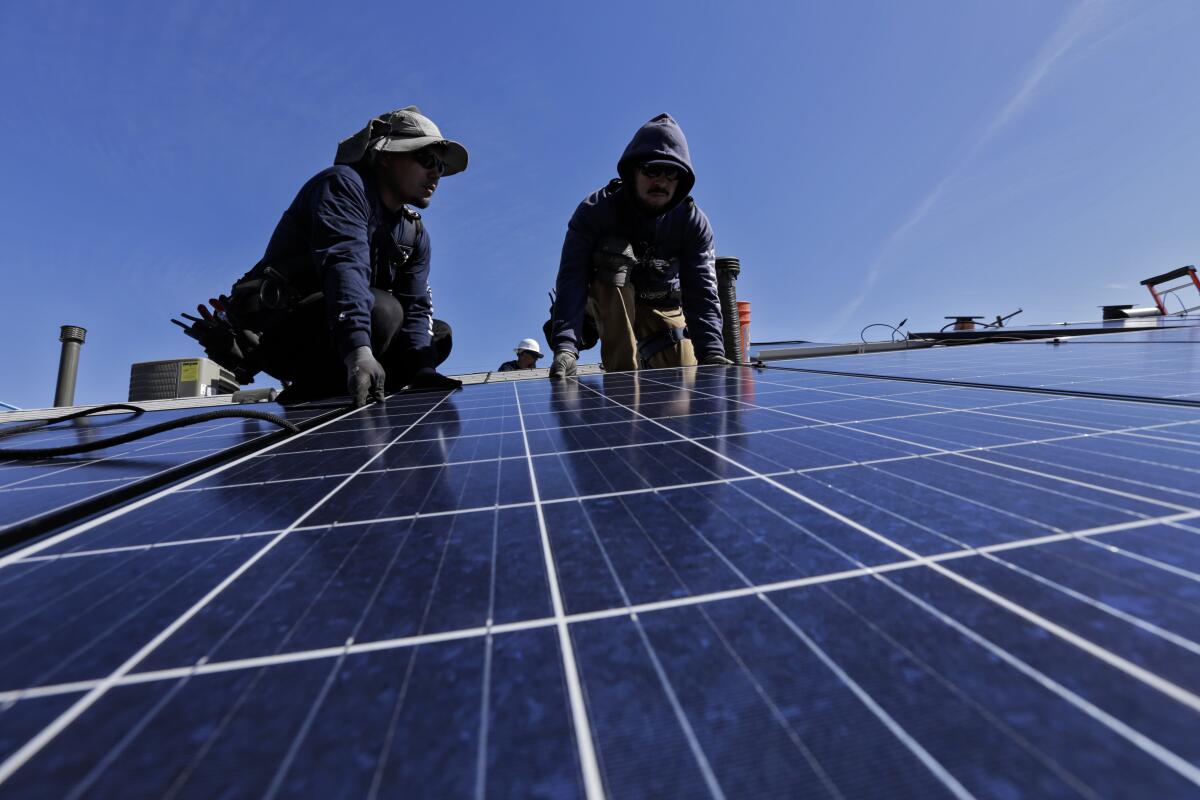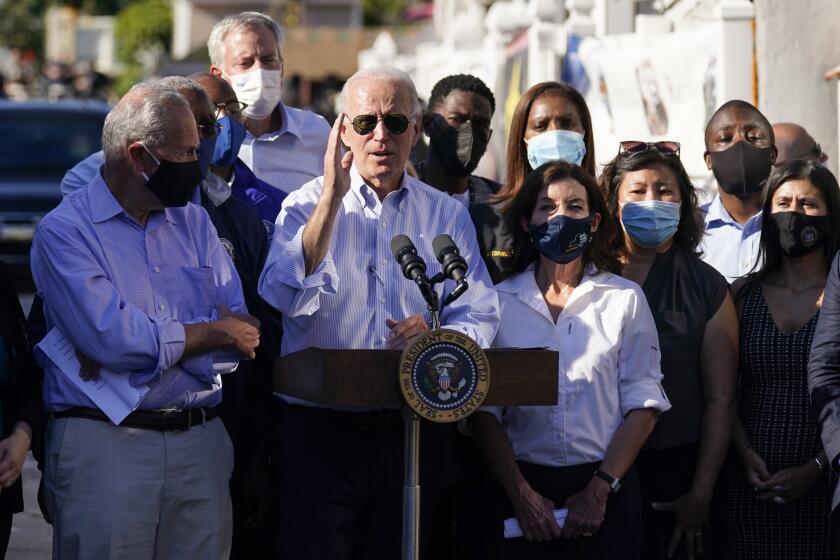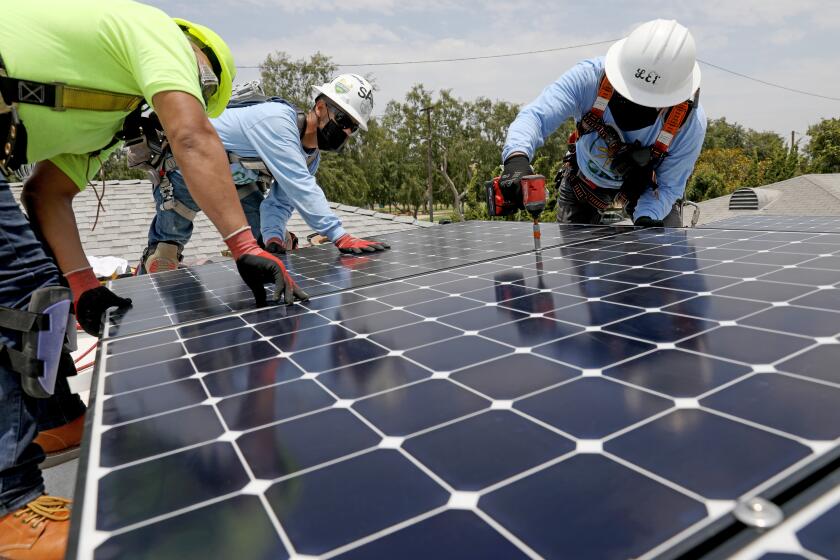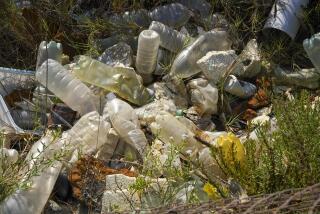Biden aims to jump-start solar energy projects stalled by probe

- Share via
WASHINGTON — President Biden sought to boost the new energy sector with actions Monday aimed at increasing the production and installation of solar panels.
Biden signed an executive action halting for two years any new tariffs on solar panel parts from Asia. Imports of such panels have been held up due to a Commerce Department investigation. He also invoked the Defense Production Act to accelerate domestic manufacturing for clean energy projects including solar panel components.
“For too long the nation’s clean energy supply chain has been over-reliant on foreign sources and adversarial nations,” said Energy Secretary Jennifer M. Granholm in an official statement. “With the new DPA authority, DOE can help strengthen domestic solar, heat pump and grid manufacturing industries while fortifying America’s economic security and creating good-paying jobs, and lowering utility costs along the way.”
Solar projects, including those in California, have slowed in recent months amid the Commerce Department’s lengthy investigation into whether imports of solar panels from Cambodia, Malaysia, Thailand and Vietnam are circumventing tariffs on goods made in China.
The industry — nervous about the imposition of retroactive tariffs on already imported goods once the investigation concludes — has been forced to hold billions of dollars in reserve.
Biden’s action, the administration said, is an attempt to free up that capital to increase production and serve as “a bridge” for solar companies over the next two years while domestic production ramps up.
Under Biden’s orders, the Defense Production Act will also be used to boost manufacturing of transformers and grid components, insulation and heat pumps, an increasingly common alternative to natural gas furnaces that the administration views as vital in the transition to cleaner energy sources. That is especially so given the market implications of Russia’s ongoing war in Ukraine.
“To reduce the amount of energy needed in our buildings, leading to less reliance by the U.S. and allies on adversaries such as Russia for oil and gas, heat pumps are an important solution,” the Energy Department stated in its official announcement.
Just last month, the Los Angeles City Council voted to ban gas appliances in new construction as part of the broader initiative to shift toward a zero-emissions policy by next year.
The Energy Department report says such an increase in solar power would require massive policy changes and billions of dollars in federal investment.
With Biden’s broader domestic agenda — including a proposed $550 billion to combat climate change — stalled in the Senate and inflation still high as the the midterm election season draws closer, the president has increasingly turned to executive action to try to stabilize the economy.
He has already invoked the Defense Production Act several times: to address the infant formula shortage, to ramp up domestic output of key minerals for electric vehicle batteries and to boost the production of tests and vaccines amid an ongoing COVID-19 pandemic.
Biden’s latest actions, the White House said, put the U.S. on pace to triple domestic solar manufacturing capacity by 2024.
Kevin Johnson, a spokesman for Clean Energy Freedom, a climate advocacy group, heralded the moves as “a historic step.”
“This is the kind of unilateral action that is needed from the White House to address the energy and climate crises,” Johnson said.
Solar companies are furious, saying the changes will harm the market for clean energy.
More to Read
Get the L.A. Times Politics newsletter
Deeply reported insights into legislation, politics and policy from Sacramento, Washington and beyond. In your inbox twice per week.
You may occasionally receive promotional content from the Los Angeles Times.













